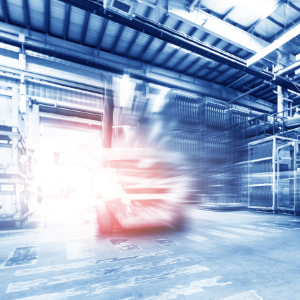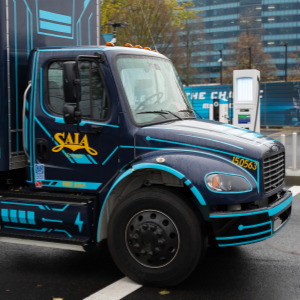Saia Partners with Daimler Trucks North America to Test Electric Box Vehicle
Saia has partnered with DTNA to test a battery electric Freightliner eM2 box truck.
Saia has partnered with Daimler Trucks North America LLC (DTNA) to test a battery electric Freightliner eM2 box truck in its Portland, Oregon pickup and delivery operations to see how the vehicle performs as part of a working, real-world fleet functioning in a commercial environment. Saia sits on DTNA’s Electric Vehicle Customer Council and is evaluating how electric vehicles can support the company’s sustainability goals.
“The truck is part of Daimler’s Freightliner battery electric Customer Experience Fleet,” explained Saia Vice President of Maintenance and Properties Cris Burgum. “Like other carriers evaluating the truck and participating in the council, we have gained enormous insight into how we can integrate electric vehicles into our fleet. Our Portland terminal manager, Shane Newman, said that drivers at our facility there have enjoyed driving the truck and look forward to welcoming additional electric units to their operations.”
Freightliner’s battery electric Customer Experience and Innovation Fleets help DTNA to accumulate experience while performing work, in real fleets, in real commercial vehicle applications. Almost 50 customers have reached over one million miles of real-world usage.

Saia is charging the box truck at a local commercial charging station, the first of its kind in the U.S. It was the result of a partnership formed by DTNA and Portland General Electric (PGE). Electric Island, as it has been dubbed, opened last spring to allow medium and heavy-duty electric commercial trucks, vehicles capable of moving up to 80,000 pounds at highway speeds, to charge.
“The explosion of zero-emission technology in the transportation industry these last few years has been amazing to see,” stated Burgum. “We’re constantly investigating ways in which we can reduce our carbon footprint by improving tractor mileage, reducing emissions, and more. It’s simply good business to do so. We want to be good stewards of the environment and conduct our operations in a responsible manner.”



